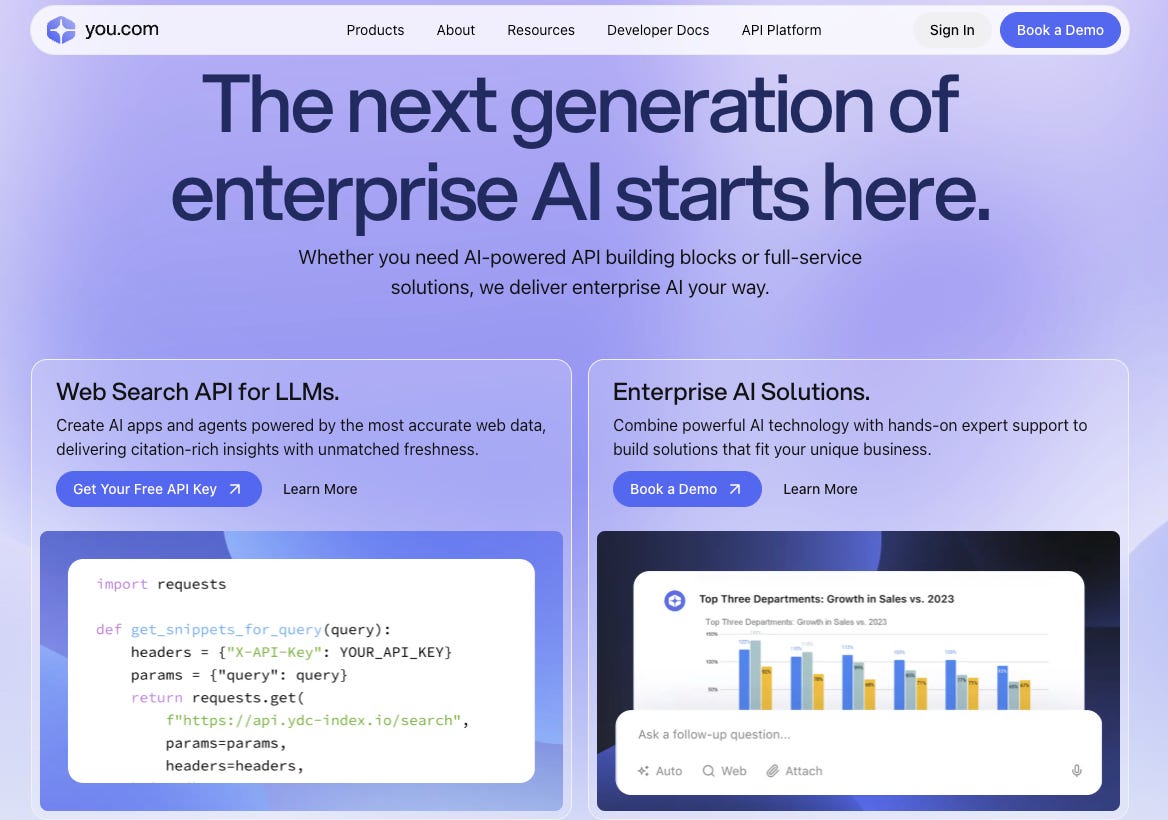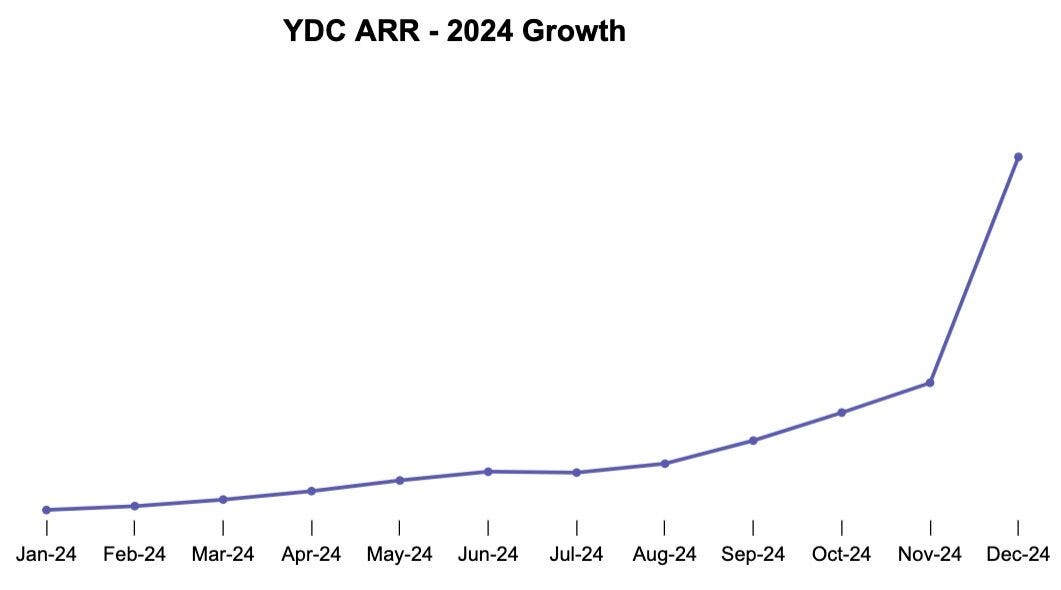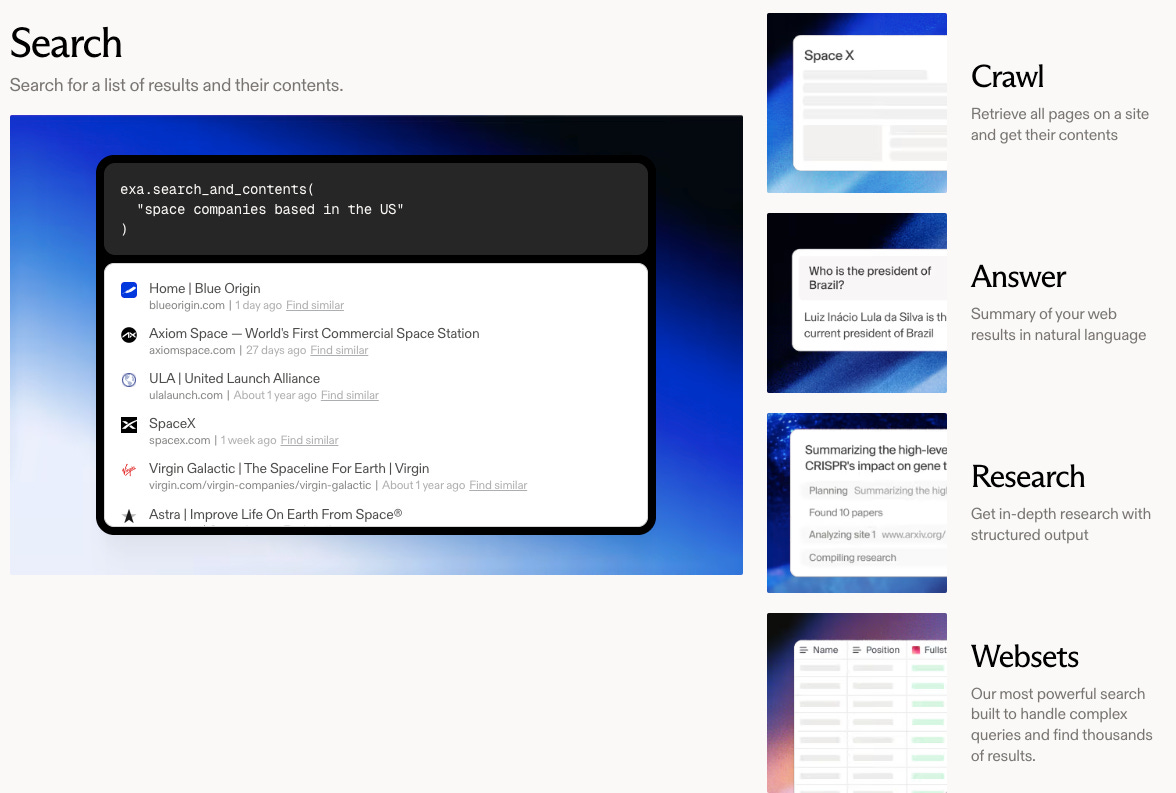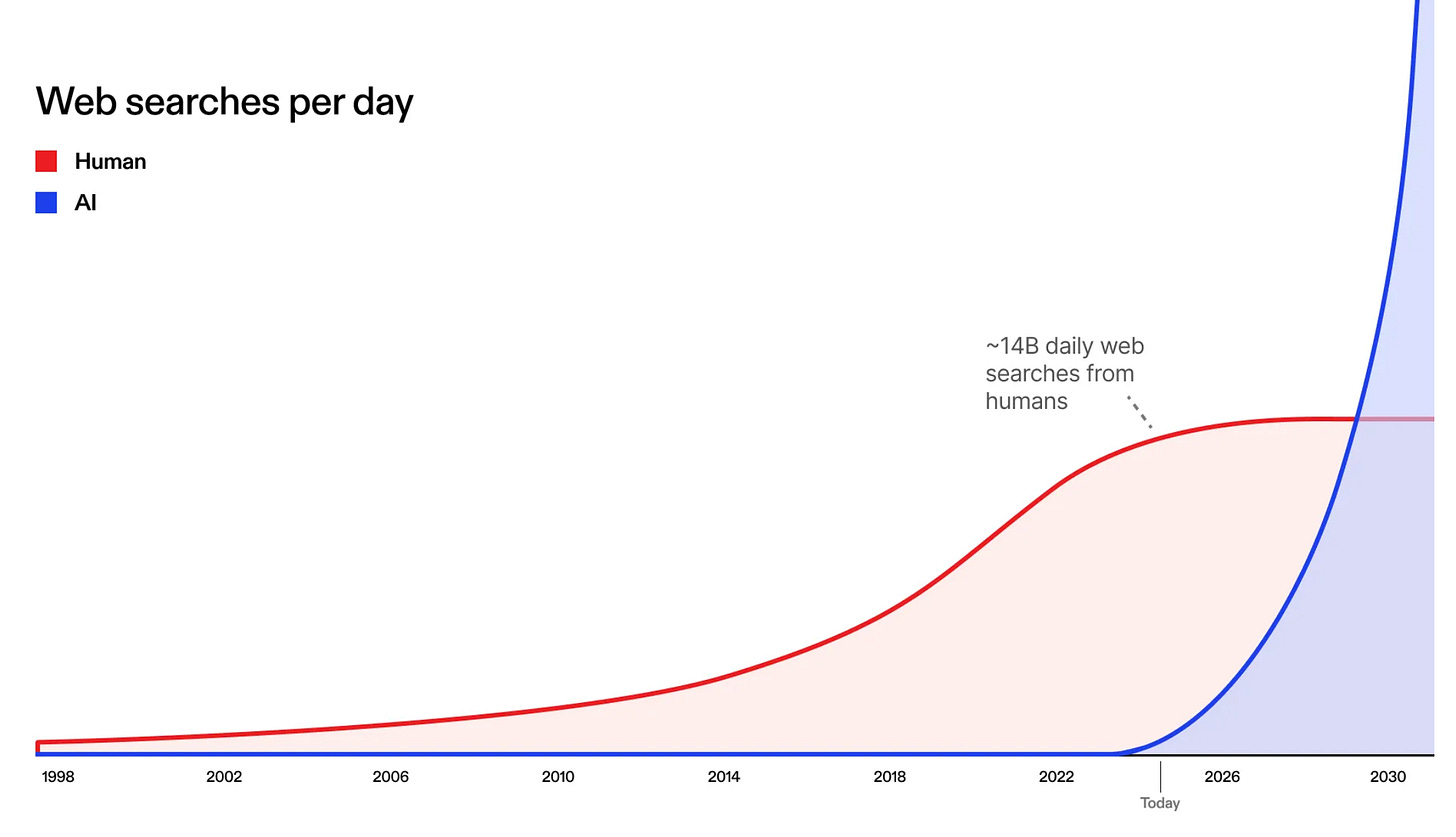The Rise of Search Engines for AI Agents: You.com is now $1.5B and Exa $700M
2 College Dropouts Built a $10M+ ARR API for meetings
Last night, The Browser Company — the startup behind Arc and its AI-first browser Dia — announced that it is being acquired by Atlassian for $610 million in cash.
For a company with little revenue and a modest user base, it’s a remarkable exit — the kind that naturally stirs both envy and curiosity about what Atlassian sees in the future of browsers.
But the bigger story this week might not be browsers at all. It’s AI search — and specifically, the idea that in the coming years, search will no longer be built primarily for humans, but for AI Agents.
Two startups in this space, You.com and Exa, just announced major funding rounds, each underlining the same thesis: AI Agents will soon outnumber human users on the web, and they will need an entirely new kind of search infrastructure.
You.com: From Consumer Privacy Search to AI Infrastructure
You.com announced a $100 million Series C led by Cox Enterprises, at a $1.5 billion valuation. This marks a sharp evolution for a company that originally positioned itself as a privacy-focused, customizable alternative to Google.
In its early days, You.com built features like YouChat (conversational AI search), YouWrite (AI writing assistant), and YouImagine (AI image generation). These tools helped users search, create, and organize information more efficiently — an attempt to blend productivity with generative AI.
But in its blog post announcing the new funding, the company made its new direction explicit:
AI has entered a new era. Soon, the number of AI Agents using the web will exceed the number of humans. Today’s search infrastructure wasn’t designed for this — it was built for people clicking links. Agents need deep, context-rich information from both public and private data to make decisions and take action.
To address this, You has rebranded itself as the highway of the Agent era: a platform that aggregates data from multiple sources, chooses the right model for the task, and delivers enterprise-grade reliability and accuracy.
Today, You.com’s API processes over 1 billion queries per month, powering products at DuckDuckGo, Windsurf, Harvey, and a wide range of enterprise customers across finance, e-commerce, media, manufacturing, and more.
The pivot is clearly working. Now, You.com’s ARR is reported at $50 million, with revenue growing 40x in 2024 alone.
Much of this growth came after November, when the company nearly eliminated hallucinations from its results and began offering APIs to external partners.
Investors see the shift from consumer-facing tools to enterprise infrastructure as the key to You.com’s rising valuation: enterprises want customized, secure, and high-performance AI search solutions, and You.com is well-positioned to provide exactly that.
Exa: The Google for Agents
If You.com is pivoting toward enterprise infrastructure, Exa has been “Agent-first” from day one.
Today, Exa announced an $85 million round led by Benchmark’s Peter Fenton, with participation from Lightspeed, Nvidia, and Y Combinator. The new funding values the company at $700 million — up from just $70 million a year ago, a 10x increase with a team of fewer than 40 employees.
Exa’s mission is ambitious: to build the Google of the AI era. Unlike traditional search engines, which rely on keyword matching, Exa transforms web pages into embeddings that support semantic search.
This makes it particularly well-suited for AI Agents, which require high-quality knowledge rather than superficial link lists.
Thousands of enterprise customers already use Exa’s API, including Cursor, Versor, AWS, and multiple Fortune 500 companies.
From “Geek Search” to Agent Infrastructure
When Exa first launched, its pitch was a search engine for power users — the kind of “geek search” Google could never provide. For example: “Show me all machine learning engineers in New York who run personal blogs, sorted by years of experience.”
Just two weeks after launch, ChatGPT was released, and developers quickly began asking to plug Exa into their apps. That was the turning point: Exa realized that AI Agents, not just humans, needed advanced search capabilities.
CEO Will Bryk explained the difference this way:
Humans are lazy. We type a few keywords, click a few links, and want a nice interface. Agents are different: they can handle long, complex queries, scan thousands of results, and filter for only the highest-quality knowledge. If you’re designing a search engine for AI, every design choice changes.
That realization became the company’s north star: Exa would not be a consumer portal, but the search infrastructure layer for AI.
Why Exa Believes Search Must Be Rebuilt
Exa takes a contrarian path: it trains its own models rather than relying on open source. Bryk argues that while open-source language models are improving, search-specific models are still too weak.
The company plans to expand its GPU clusters 5x with the new funding, aiming to create what Bryk calls “perfect search” — a system that enables models to access the full breadth of the internet, in real time.
He contrasts this with large language models:
LLMs are trained on the internet, but compressed into a fixed set of weights. They can never remember the entire web, and the web is constantly changing. That’s why LLMs will always depend on search.
For Exa, the long-term vision is nothing less than to finish the mission Google never completed: to truly organize the world’s knowledge for instant, reliable access.
The Bigger Picture
Both You.com and Exa point to the same future: the next generation of search engines will be built not for humans, but for AI Agents.
Agents will outnumber humans online.
Search will need to handle complex, high-volume, high-precision queries.
Winners will be infrastructure providers, not consumer-facing portals.
In other words, Google built the search engine for billions of people. The next Google will build the search engine for billions of agents. And that race has just begun.
2 College Dropouts Built a $10M+ ARR API for meeting
There are lots of AI Note-taking tools that have had an explosive growth. I did a summary of 7 AI note-taking tools that raised more than $500M last year.
But the war for AI note-taking is still on, and it has now expanded from the product side to the API side.
Two 19-year-old college dropouts have just built a $10M+ ARR API for meetings, and turning it into the invisible infrastructure powering thousands of AI tools.






